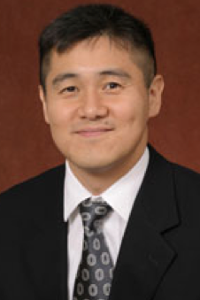Who has good genes for a healthy wake-sleep cycle?

Dr. Choogon Lee; Associate Professor; Florida State University
March 2 at 12:20pm in the Fralin Auditorium, Fralin Hall 102
Hosted by Dr. C. Finkielstein
The wake-sleep cycle is the most salient circadian rhythm in mammals. The phase of wake-sleep cycles naturally varies (as seen with morning larks versus night owls), but in certain human sleep disorders, the phase may be extremely advanced or delayed beyond the normal range. Circadian disorders like these are primarily diagnosed using behavioral tools such as actigraphy and sleep diaries. However, deeper molecular classification and understanding of circadian sleep disorders are profoundly limited by the scarcity of research on their pathophysiology and the gaps in our knowledge of circadian biology. For instance, we recently published studies of mutant mice whose phase of wake-sleep cycles shifts daily in an unpredictable manner. This destabilized phenotype was not readily explained by the current clock model, and differed from all previous circadian mutant animals. Although we gained important insights from our studies, there are intrinsic challenges to studying physiology with inbred mice: their genetic and phenotypic uniformity contrasts sharply with the wide spectrum of human physiology that arises from the unfathomably large human gene pool. In this seminar, I will explain how we used our mouse model to determine that nonlinearity is essential for the stability of the clock, and I will present a new approach to study the diversity of under-recognized human sleep disorders.

This seminar will NOT be livestreamed or recorded.


